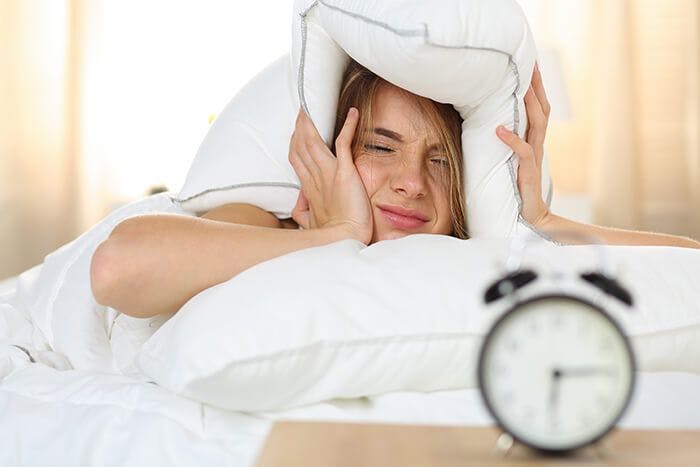We all want to wake up feeling refreshed, revived, and ready for the day in the mornings. However, some mornings this simply is not the case. We wake up feeling sleepy and sluggish and tend to drink more than our normal coffee amount to try and remedy this feeling.
However, there could be several reasons why we wake up so tired in the mornings, particularly if it happens more often than not. If this is the case, we need to look at several factors, including our diet, and our sleep environment, and also consider whether we may have a sleep disorder of some kind. This post will explain why you may be tired in the mornings.
Your Diet Could Affect Your Sleep
Your diet can affect your sleep quality! Frequently drinking excess amounts of caffeine and consuming excess alcohol can particularly affect how well you sleep. Several studies have suggested that caffeine can delay the timing of your body clock and that consuming caffeine six hours before your bedtime can reduce your sleep time by up to one hour.
As a society, we have become heavily reliant on caffeine for our energy levels; however, this has a detrimental effect on how we relax and sleep. It’s recommended that you don’t drink coffee, or limit any caffeine consumption from other sources, after lunchtime. That way your body has adequate time for any caffeine levels to drop. Plus, it is recommended by the FDA that you consume a maximum of 400 milligrams of caffeine per day - so about 4-5 cups. Excess alcohol consumption will also affect your sleep quality.
According to the Sleep Foundation, high amounts of alcohol consumption prior to bed will reduce a healthy person’s sleep quality by up to 39.2%. We aren’t saying you should cut alcohol from your diet altogether, but if your sleep is suffering and you do consume large amounts, it is something to bear in mind.
Your Sleep Environment Could Affect Your Sleep
Our sleep environment is vitally important to get right! Where we sleep should be comfortable, relaxing, and optimal for sleep. This means minimal harsh lighting, no loud noises, an optimal temperature, and comfortable bedding. If our mattress is uncomfortable, it can really affect our sleep quality.
Endless hours spent tossing and turning instead of sleeping will obviously leave us feeling sluggish and tired the next day. Similarly, if our room is on a loud street and we are light sleepers, we will be greatly affected by any cars driving past, street noises, and people.
Finally, our temperature decreases during the night, so it’s important to maintain your room at the optimal temperature to be comfortable throughout the night. Studies have suggested that this ideal temperature is 65F. You may not have considered how your sleeping conditions would affect your sleep, but they are of great importance to get right so that we feel well-rested and prepared for the day ahead every time we wake up!
A Sleep Disorder Might Affect Your Sleep
Several sleep disorders may affect the quality of your sleep. These include sleep movement disorder, sleep apnea, and insomnia. We’re going to explain what each of these means so that you can identify them if you need to.
Sleep Movement Disorder is where repetitive movements interfere with your sleep. This could be repetitive rocking, limb movement, or teeth grinding, for example.
Sleep Apnea is a potentially serious sleeping disorder. Symptoms include snoring loudly and feeling tired even after sleeping for a full night’s sleep. Your breathing will repeatedly stop and start while you sleep if you have sleep apnea.
Insomnia is when you struggle to either fall asleep, stay asleep, or both. It can severely affect mental health due to the stress associated with trying to get and stay asleep.
How Do I Stop Waking Up Tired?
Getting a good night’s sleep is important for our mental health and wellbeing. It’s advised to start prepping for bed between 1-2 hours before your actual bedtime, by limiting screen time, limiting blue light, reading a book, meditating before bedtime, or taking a warm bath, for example. It’s also recommended that you create a sleep schedule, where you go to bed and wake up at the same time every day to create a routine for your body.
Sleep is essential, and waking up in the morning feeling refreshed and rejuvenated can set us up well for the day ahead. There may be many reasons as to why you’re tired in the mornings, but it is important for your health that you understand your own sleep schedule and optimize your health, well-being, and routine to stop waking up feeling tired.






